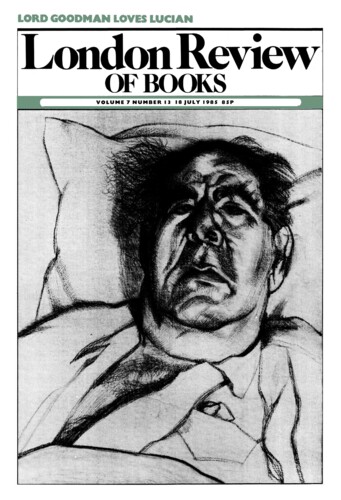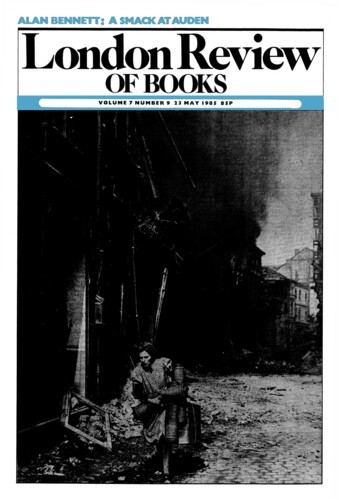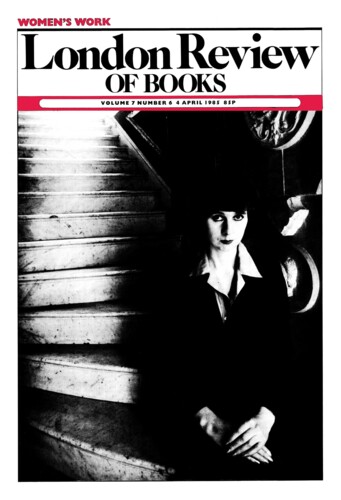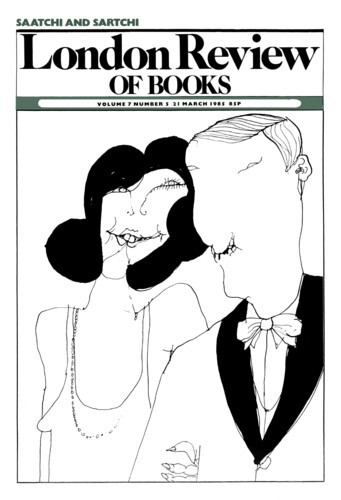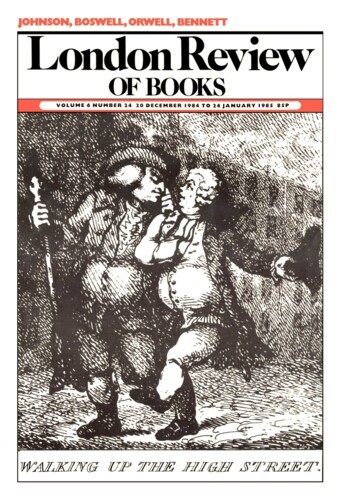Grande Dame
D.A.N. Jones, 18 July 1985
Marguerite Yourcenar was born in Brussels in 1903. She became a US citizen in 1947 and has lived for more than thirty years on Mount Desert Island, off the coast of Maine. Thus when she was proposed for membership of the French Academy, it was natural that some Frenchmen would make an issue of her nationality, in order to prevent a woman joining their club. However, the justice minister granted her dual nationality on the grounds of her ‘evident cultural links’ with France, and in 1980 she became the first woman member of the Academy. In that same year, Les Yeux Ouverts: Entretiens avec Matthieu Galey was published in Paris. Galey, a French journalist, had been to interview her on Mount Desert Island. The title of the book was a quotation from Mme Yourcenar’s novel, Memoirs of Hadrian: ‘Let us try, if we can, to enter into death with open eyes.’
